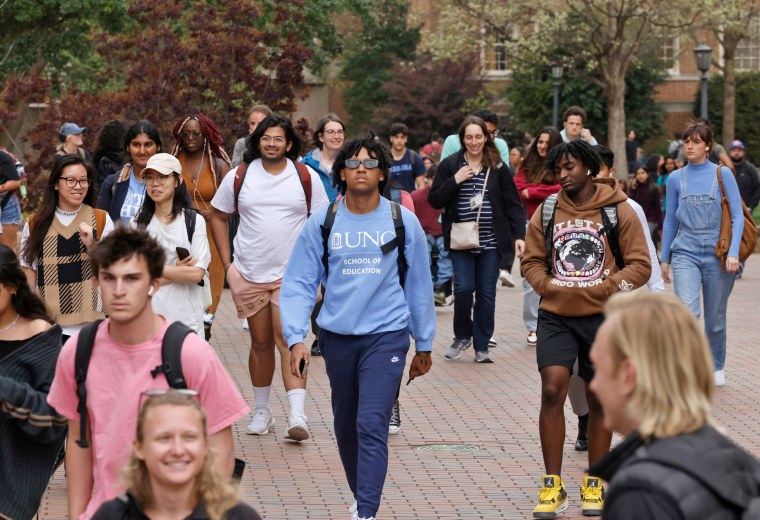WASHINGTON — The Supreme Court on Thursday struck down affirmative action programs at the University of North Carolina and Harvard in a major victory for conservative activists, ending the systematic consideration of race in the admissions process.
The court ruled that both programs violate the Equal Protection Clause of the Constitution and are therefore unlawful. The vote was 6-3 in the UNC case and 6-2 in the Harvard case, in which liberal Justice Ketanji Brown Jackson was recused.
The decision was hailed by prominent conservatives, who say the Constitution should be "colorblind," with former President Donald Trump calling the ruling "a great day for America." Liberals, however, condemned the ruling, saying affirmative action is a key tool for remedying historic race discrimination.
"It wasn’t perfect, but there’s no doubt that it helped offer new ladders of opportunity for those who, throughout our history, have too often been denied a chance to show how fast they can climb," said former first lady Michelle Obama, the first Black woman in that role.
President Joe Biden called the decision a "severe disappointment," adding that his administration would provide guidance on how colleges could maintain diversity without violating the ruling.

The court effectively overturned the 2003 ruling Grutter v. Bollinger, in which the court said race could be considered as a factor in the admissions process because universities had a compelling interest in maintaining diverse campuses. In doing so the court scrapped decades of precedent, including one ruling dating to 1978, that upheld a limited consideration of race in university admissions as a way to combat historic discrimination against Black people and other minorities.
In the majority opinion, Chief Justice John Roberts did not explicitly say that the former precedents were overruled, but in a concurring opinion conservative Justice Clarence Thomas, only the second Black justice to be appointed to the court, said that the Grutter case was "for all intents and purposes, overruled."
Roberts wrote that both programs "lack sufficiently focused and measurable objectives warranting the use of race, unavoidably employ race in a negative manner, involve racial stereotyping, and lack meaningful end points."
The ruling exposed stark divisions among the justices, who sit on a court that is more diverse than it has ever been.
Jackson, the first Black woman to serve on the court, wrote in a dissenting opinion that the ruling was "truly a tragedy for us all."
Justice Sonia Sotomayor, another liberal and the first Hispanic justice, wrote that the court "stands in the way and rolls back decades of precedent and momentous progress."
Sotomayor, in a sign of her displeasure, read a lengthy summary of her dissenting opinion in the courtroom.


0 Commentaires